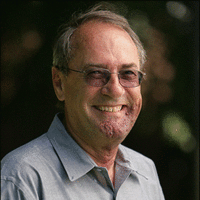Distinct and separate models constructed to model different aspects of the same system.
Event
SASO 2013
Seventh IEEE International Conference
on Self-Adaptive and Self-Organizing Systems
Philadelphia, USA; September 9-13, 2013
The 2013 edition of the Self-Adaptive and Self-Organizing systems conference (SASO) will be held in Philadelphia, PA, USA, and hosted by Drexel University, in the week of September 9-13, 2013.
Submitted by Anonymous on April 19th, 2013
Event
MDWE 2013
9th International Workshop on Model-Driven and Agile Engineering for the Web
Workshop at ICWE 2013
http://mdwe2013.dlsi.ua.es
Aalborg, Denmark
July 8th, 2013
****** OVERVIEW ******
Submitted by Anonymous on April 19th, 2013
Event
Resilience Week 2013
Symposia dedicated to promising research in resilient systems that will protect cyber-physical infrastructures from unexpected and malicious threats--securing our way of life.
 Submitted by Craig Rieger on September 18th, 2012
Submitted by Craig Rieger on September 18th, 2012
Project
CPS: Medium: Towards Neural-controlled Artificial Legs using High-Performance Embedded Computers
The objective of this research is to develop a trustworthy and high-performance neural-machine interface (NMI) that accurately determines a user?s locomotion mode in real-time for neural-controlled artificial legs. The proposed approach is to design the NMI by integrating a new pattern recognition strategy with a high-performance computing embedded system.
This project tackles the challenges of accurate interpretation of information from the neuromuscular system, a physical system, using appropriate computation in a cyber system to process the information in real-time. The neural-machine interface consists of multiple sensors that reliably monitor the neural and mechanical information and a set of new algorithms that can fuse and coordinate the highly dynamic information for accurate identification of user intent. The algorithm is to be implemented on a high-performance graphic processing unit (GPU) to meet real-time requirements.
This project has the potential to enable the design of neural-controlled artificial legs and may initiate a new direction for research in and the design of prosthetic leg systems. Innovations in this domain have the potential to improve the quality of life of leg amputees, including soldiers with limb amputations. The proposed approaches seek to permit cyber systems to cope with physical uncertainty and dynamics, a common challenge in cyber-physical systems, and to pave a way for applying high-performance computing in biomedical engineering. Besides providing comprehensive training to undergraduate and graduate students, the investigators plan to introduce community college students to cyber-physical systems concepts in an interactive and engaging manner.
Off
Washington University
He (Helen) Huang
-
National Science Foundation
Qing Yang
Yan Sun
Huang, He (Helen)
 Submitted by He (Helen) Huang on November 4th, 2011
Submitted by He (Helen) Huang on November 4th, 2011
The objective of this research is to develop new foundations of composition in heterogeneous systems, to apply these foundations in a new generation of tools for system integration, and to validate the results in experiments using automotive and avionics System-of-Systems experimental platforms. The approach exploits simplification strategies: develop theories, methods, and tools to assist in inter-layer decoupling.
The research program has three focus areas:
(1) theory of compositionality in heterogeneous systems,
(2) tools and tool architectures for system integration, and
(3) systems/experimental research.
The project develops and deploys theories and methods for inter-layer decoupling that prevent or decrease the formation of intractable system-wide interdependences and maintain compositionality at each layer for carefully selected, essential system properties. Compositionality in tools is sought by exploring semantic foundations for model-based design. Systems/experimental research is conducted in collaboration with General Motors Global R&D (GM) and focuses on electric car platforms.
The project is contributing to the cost effective development and deployment of many safety and security-critical cyber-physical systems, ranging from medical devices to transportation, to defense and avionics. The participating institutions seek to complement the conventional curriculum in systems science with one that admits computation as a primary concept. The curriculum changes will be aggressively promoted through a process of workshops and textbook preparation.
Off
John Baras
Panos Antsaklis
Xenofon Koutsoukos
Shige Wang
Vanderbilt University
Janos Sztipanovits
-
National Science Foundation
Sztipanovits, Janos
 Submitted by Janos Sztipanovits on April 7th, 2011
Submitted by Janos Sztipanovits on April 7th, 2011
Feedback
Feedback
If you experience a bug or would like to see an addition or change on the current page, feel free to leave us a message.